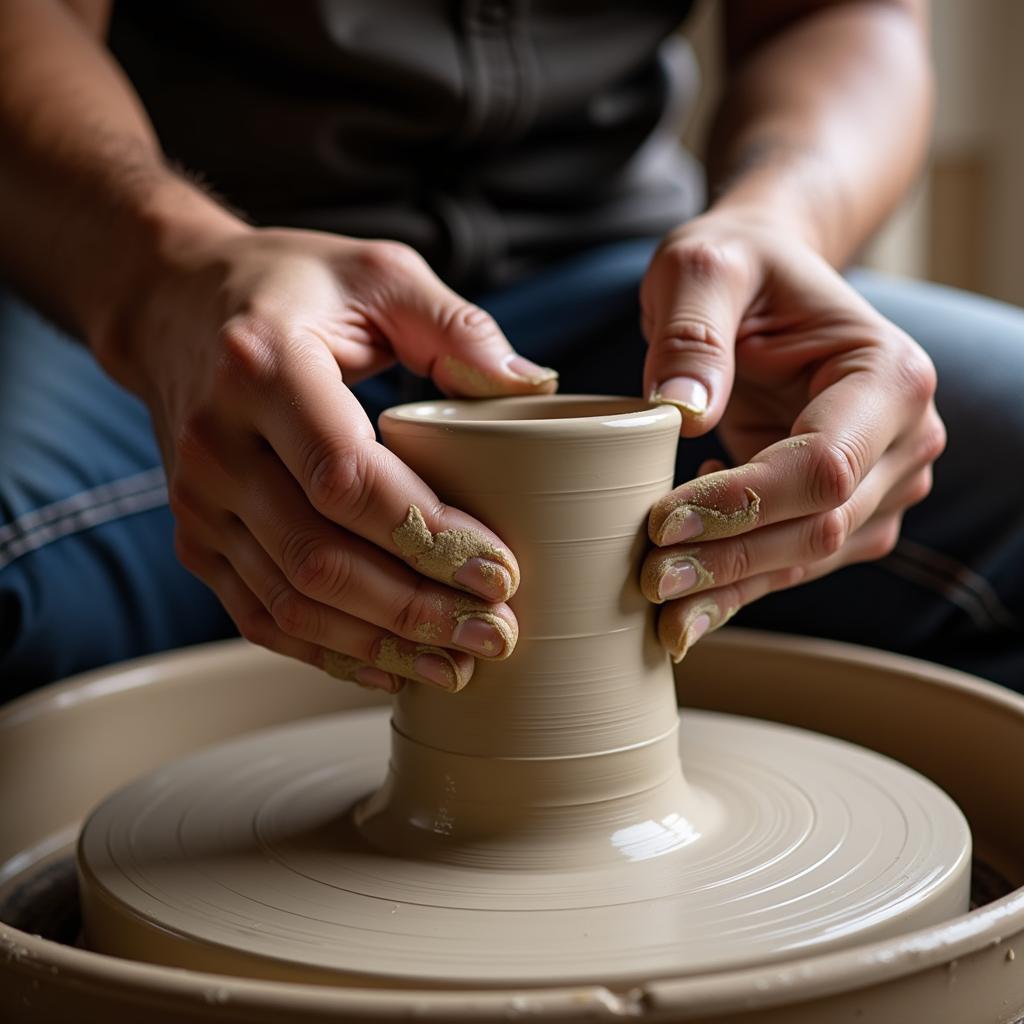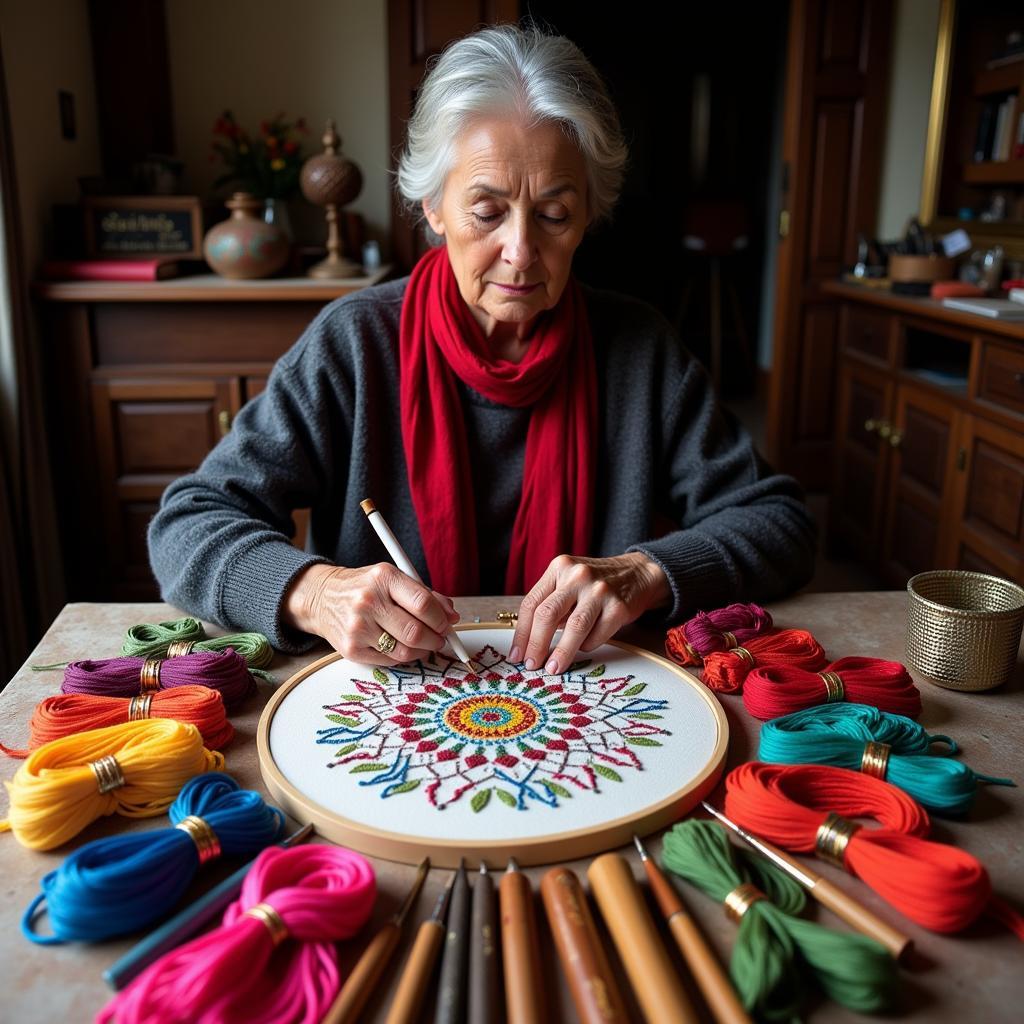Similar to describe a moment when you felt very thankful, this topic requires detailed observation and personal connection to deliver an impressive response.
Part 1: Introduction Questions
Common questions you may encounter:
- Do you like making things by hand?
- What kinds of handmade items are popular in your country?
- Is it important to learn handcraft skills?
Sample answer (Band 8-9):
“I absolutely adore creating things with my hands. I find it incredibly therapeutic and rewarding to see something take shape through my own efforts. In my country, traditional textile crafts and pottery are particularly popular, as they reflect our cultural heritage.”
 A skilled artisan crafting traditional pottery in workshop setting
A skilled artisan crafting traditional pottery in workshop setting
Part 2: Cue Card
Describe a person you know who likes to make things by hand
You should say:
- Who this person is
- What they like to make
- How they learned these skills
- And explain why you think they enjoy making things by hand
Like describe a hobby you used to have as a child, this response should showcase personal experiences and emotional connection.
Sample Answer (Band 8-9):
“I’d like to talk about my grandmother, who is an exceptionally talented craftsperson. She specializes in creating intricate embroidered tapestries that tell stories of our family history and cultural traditions.
My grandmother picked up these skills during her childhood in rural Vietnam, where she apprenticed under local artisans. She would spend countless hours observing their techniques and practicing meticulously until she mastered each stitch pattern.
What sets her apart is her ability to blend traditional methods with contemporary designs. She often incorporates modern elements while staying true to the classical techniques she learned decades ago.
I believe she finds such joy in handcrafting because it allows her to express herself creatively while preserving our cultural heritage. The process itself is meditative for her, and seeing others appreciate her work brings her immense satisfaction.”
 Elderly woman creating detailed embroidery with traditional techniques
Elderly woman creating detailed embroidery with traditional techniques
Part 3: Discussion Questions
Similar to describe a person who is good with children, these questions explore broader social implications.
Q: Why do some people prefer handmade items over mass-produced ones?
Sample Answer (Band 8-9):
“Handmade items carry unique characteristics that mass-produced goods simply cannot replicate. People increasingly value the authenticity and personal touch that comes with handcrafted items. Moreover, purchasing handmade products supports local artisans and helps preserve traditional craftsmanship.”
Q: How has modern technology affected traditional handicrafts?
Sample Answer (Band 8-9):
“Technology has had a dual impact on traditional handicrafts. While it has streamlined certain processes and provided new platforms for artisans to showcase their work, it has also posed challenges to maintaining authentic techniques. However, many craftspeople are successfully adapting by incorporating modern tools while preserving traditional methods.”
Key Vocabulary and Expressions
- Meticulous craftsmanship /məˈtɪkjʊləs/ (adj.) – showing great attention to detail
- Artisanal /ɑːtɪˈzænəl/ (adj.) – made in a traditional or non-mechanized way
- Time-honored techniques (phrase) – traditional methods passed down through generations
- Labor of love (idiom) – work done for pleasure rather than money
As describe a friend who has a great sense of humor demonstrates the importance of personal connection, your response should reflect genuine appreciation for the craftsperson’s skills and dedication.
Just as describe a person you know who enjoys their job, emphasize the passion and satisfaction derived from the creative process.


